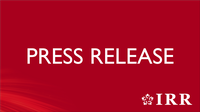
Earlier this year the Constitutional Court directed Parliament to amend the Electoral Act within two years to allow independents to stand in elections. This requires an overhaul of our electoral system, with time running short to design and implement a new electoral system.
As a contribution to the debate the Institute of Race Relations (IRR) today releases a report on electoral reform and provides a number of proposed solution to the South African electoral conundrum.
This new report recommends that South Africa adopts one of two electoral systems. Its first proposal is that South Africa use the system that was recommended by the Van Zyl Slabbert Commission of nearly two decades ago, whereby the country would have been split into 69 multi-member constituencies, with additional MPs elected from party lists to ensure proportionality. The second proposal is to scale up the current municipal electoral system (where half of a municipality’s representatives are elected from single-member wards and the other half from party lists to ensure proportionality) to provincial and national level.
The report also provides a short overview of the debate around electoral reform in post-apartheid South Africa. It also examines a number of other possible systems and other proposals for South African electoral reform.
Said the report’s author, Marius Roodt: ‘The aim of the report is not to be prescriptive but to provide a considered contribution to the debate around this important issue.’
According to Roodt much of the heavy lifting around the design of a new electoral reform has been done.
‘We don’t need to reinvent the wheel – we can look at the Van Zyl Slabbert Commission’s proposal or simply scale up our municipal system. But we can’t waste much more time on this. The Constitutional Court gave Parliament two years to change the Electoral Act. In addition, we have to have decided on a new electoral system before the next general election, which is now less than four years away.
‘A new electoral system will not be a panacea to South Africa’s woes, especially in its declining levels of voter turnout and public participation in politics. Nevertheless, a new electoral system with real linkages between communities and their representatives, could go some way in fixing – at least some – of what is broken in our country. Not least in terms of accountability – ensuring MPs have communities to answer to is one of the first steps in fixing South Africa,’ he concluded.
Read the full report here: ELECTORAL REFORM IN SOUTH AFRICA, THE TIME HAS COME
Media contact: Marius Roodt, IRR Senior Policy Researcher Tel: 063 694 2611 Email: marius@irr.org.za
Media enquiries: Michael Morris Tel: 066 302 1968 Email: michael@irr.org.za
Kelebogile Leepile Tel: 079 051 0073 Email: kelebogile@irr.org.za
 LETTER | Rethinking BEE premiums could unlock billions for growth - Business Day
Feb 19, 2026
LETTER | Rethinking BEE premiums could unlock billions for growth - Business Day
Feb 19, 2026
 IRR’s 2026 Budget tips for Minister Godongwana
Feb 19, 2026
IRR’s 2026 Budget tips for Minister Godongwana
Feb 19, 2026
 Corruption-busting must begin with next week’s Budget – IRR
Feb 18, 2026
Corruption-busting must begin with next week’s Budget – IRR
Feb 18, 2026
 Hold Ramaphosa to account for his SONA admissions of failure, IRR urges MPs
Feb 17, 2026
Hold Ramaphosa to account for his SONA admissions of failure, IRR urges MPs
Feb 17, 2026
 Corrigan pt. II: FMD crisis — How did we get to this point? - Biznews
Feb 16, 2026
Corrigan pt. II: FMD crisis — How did we get to this point? - Biznews
Feb 16, 2026

 LETTER | Rethinking BEE premiums could unlock billions for growth - Business Day
Feb 19, 2026
LETTER | Rethinking BEE premiums could unlock billions for growth - Business Day
Feb 19, 2026
 IRR’s 2026 Budget tips for Minister Godongwana
Feb 19, 2026
IRR’s 2026 Budget tips for Minister Godongwana
Feb 19, 2026
 Corruption-busting must begin with next week’s Budget – IRR
Feb 18, 2026
Corruption-busting must begin with next week’s Budget – IRR
Feb 18, 2026
 Hold Ramaphosa to account for his SONA admissions of failure, IRR urges MPs
Feb 17, 2026
Hold Ramaphosa to account for his SONA admissions of failure, IRR urges MPs
Feb 17, 2026
 Corrigan pt. II: FMD crisis — How did we get to this point? - Biznews
Feb 16, 2026
Corrigan pt. II: FMD crisis — How did we get to this point? - Biznews
Feb 16, 2026